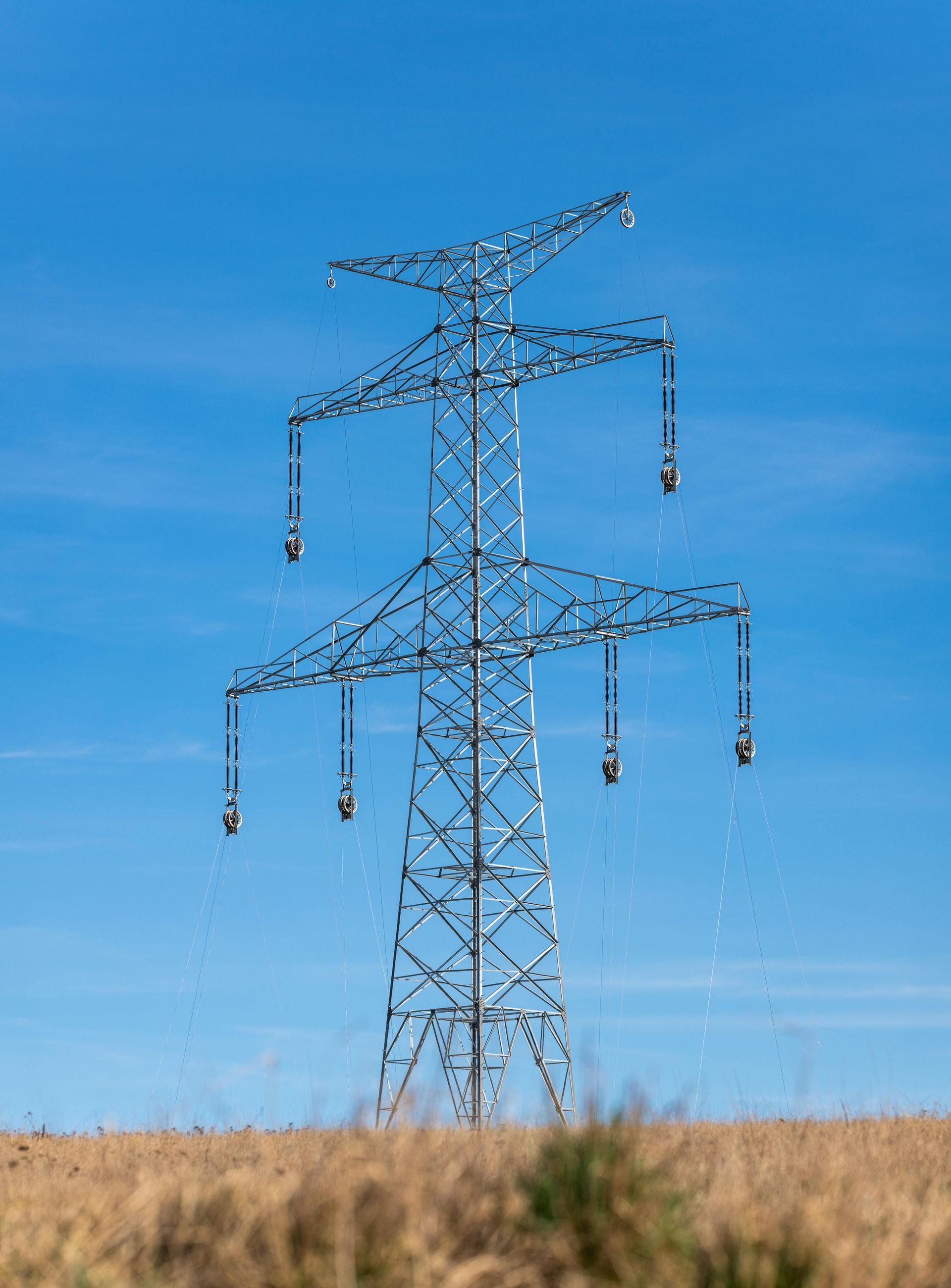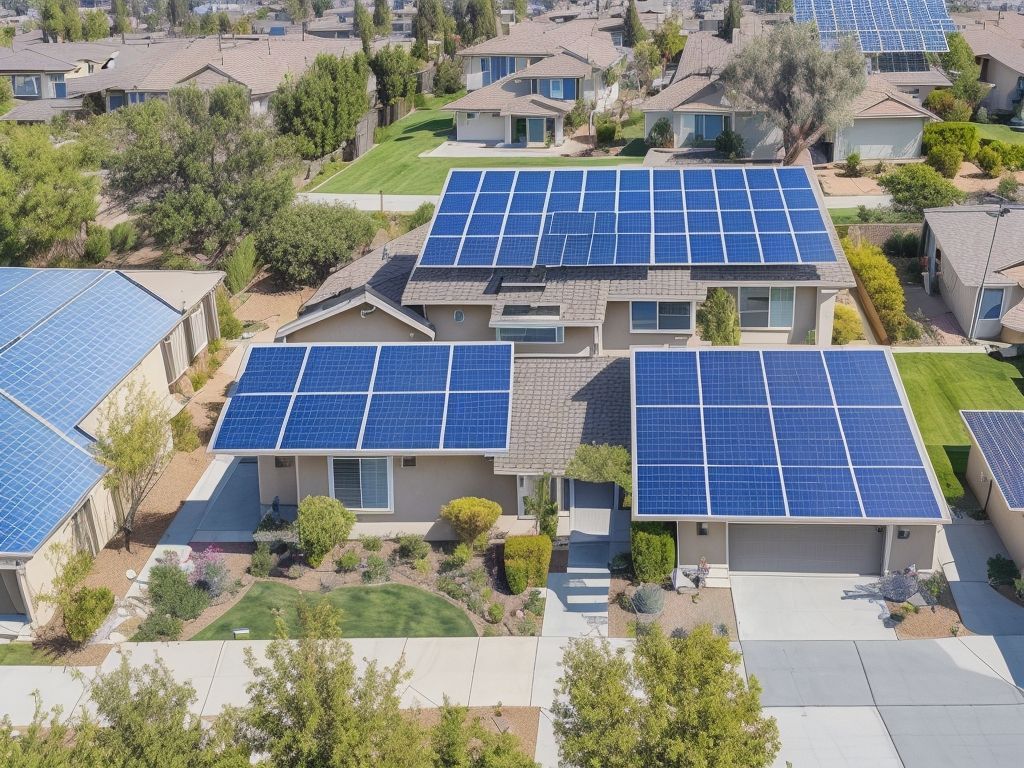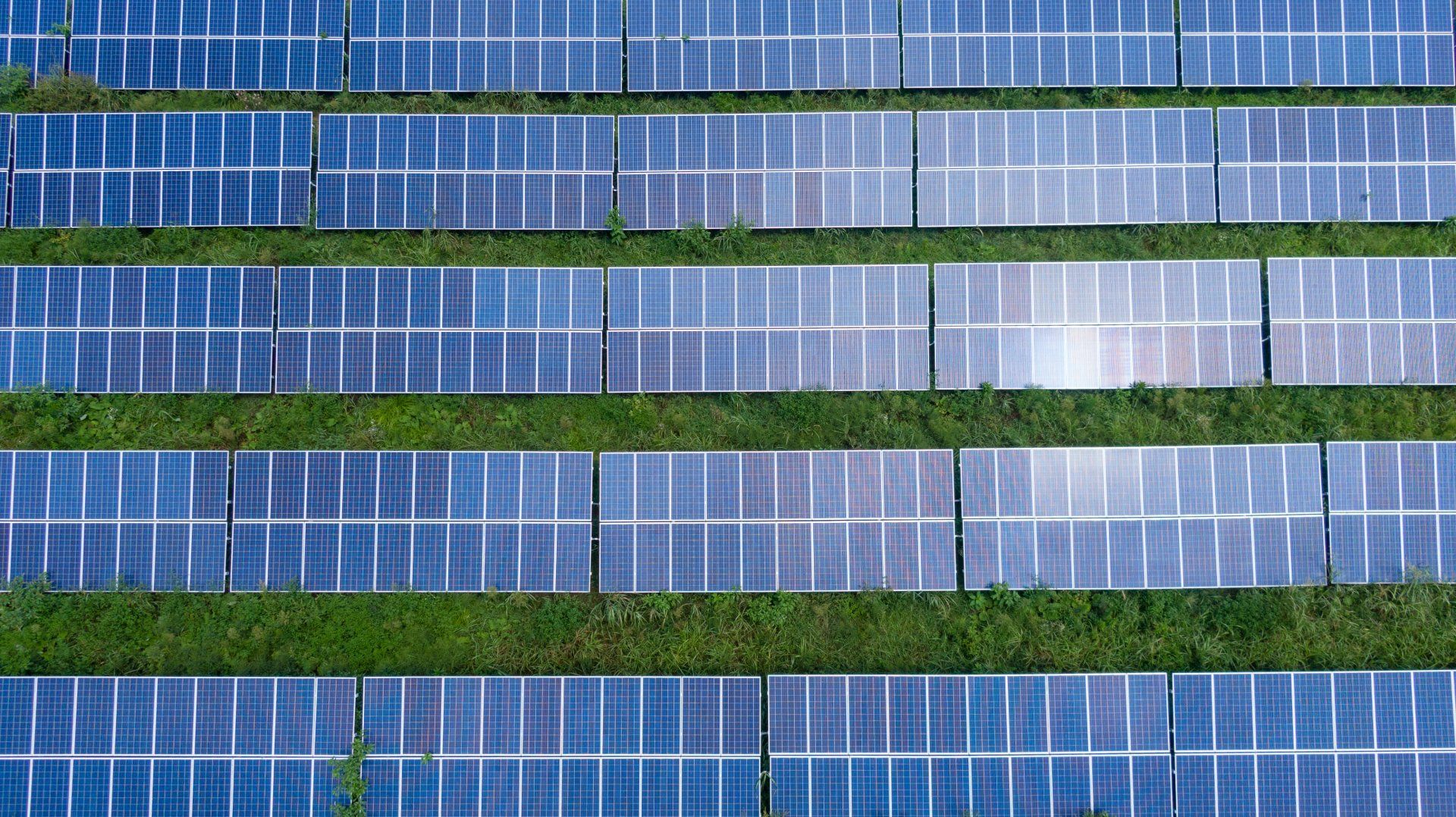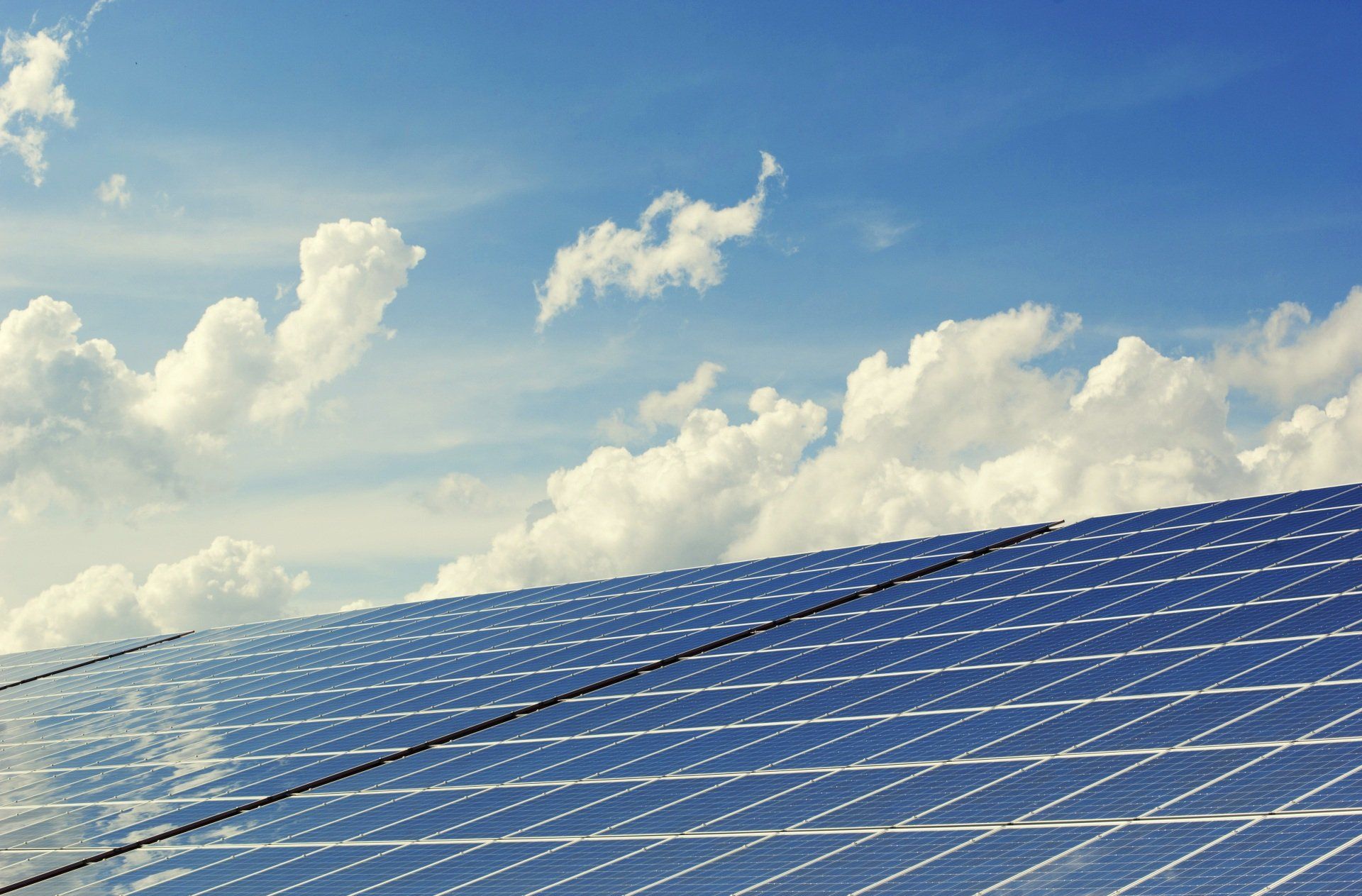How Solar Panels Work: An Intro for Homeowners
Considering making the switch to solar energy? Understanding the basics of solar panels is the first step towards harnessing the power of the sun to reduce your carbon footprint and energy costs.
We will explore how solar panels work on houses, the benefits of installing them, factors affecting their efficiency, assessing your home's suitability for solar panels, components of a solar panel system, maximizing their output, maintenance tips, common questions, getting a customized solar estimate, and choosing a trusted supplier for installation.
Let's dive in!
Introduction to Solar Panels
Introduction to Solar Panels: Solar panels are innovative devices that convert sunlight into electricity, offering homeowners a sustainable energy solution with numerous benefits for the environment and power needs.
Solar panels consist of photovoltaic cells that capture sunlight and convert it into direct current (DC) electricity through the photovoltaic effect. This electricity can either be used immediately or stored in batteries for later use, providing homeowners with a reliable source of clean energy. One of the significant benefits of solar panels is their ability to reduce utility bills by harnessing free and abundant sunlight to generate electricity. By using solar panels, homeowners can significantly lower their carbon footprint and contribute to a greener, more sustainable future.
Understanding the Basics
Understanding the Basics: Solar panels operate on the principle of photovoltaic systems, where sunlight is absorbed by cells to generate direct current (DC) electricity, which is then converted to alternating current (AC) for use in homes.Photovoltaic systems consist of individual solar cells made of semiconductor materials like silicon, which create an electric current when exposed to sunlight. These cells are connected in series and parallel to form a solar panel . When light particles, known as photons, strike the cells, they knock electrons loose from the atoms in the semiconductor material, generating an electric current. This DC electricity must then pass through an inverter to convert it into the AC electricity that powers most household appliances.
How Solar Panels Work on Houses
Solar panels work on houses by harnessing sunlight through rooftop installations, generating electricity that can power household appliances and reduce electricity bills by connecting to the grid.The process starts with the photovoltaic cells in the solar panels absorbing sunlight and converting it into direct current (DC) electricity. This electricity then flows through wires to an inverter, which converts the DC electricity into alternating current (AC) that can be used in the home.
Excess electricity generated by the solar panels can be sent back to the grid, earning credits that offset future electricity bills. This method not only promotes sustainable energy production but also lowers utility costs for households over time.
Benefits of Installing Solar Panels
Installing solar panels offers homeowners a range of benefits, including reduced electricity costs, environmental sustainability, and efficient utilization of renewable energy sources.One of the key advantages of solar panel installation for homeowners is the significant reduction in electricity costs. By utilizing the strength of the sun, homeowners can generate their electricity, leading to lower monthly utility bills. Over time, this can result in substantial savings on energy expenses, providing a cost-effective solution for long-term energy needs.
Opting for solar energy contributes to environmental sustainability by reducing the dependence on non-renewable resources, such as fossil fuels. This shift towards renewable energy helps minimize carbon emissions, thus playing a part in combating climate change and protecting the planet for future generations.
Plus financial savings and environmental benefits, solar panels are known for their remarkable efficiency in converting sunlight into electricity. This efficient conversion process maximizes the utilization of renewable energy sources and ensures a reliable supply of clean power to homeowners, even during peak energy demand periods.
Factors Affecting Solar Panel Efficiency
Several factors influence the efficiency of solar panels, such as the amount of sunlight received, the technology used in the panels, and the overall design of the system.
Optimizing sunlight exposure plays a crucial role in enhancing solar panel efficiency. Panels positioned in areas with high solar irradiance levels perform better. Moreover, technological advancements like the use of monocrystalline or polycrystalline silicon cells have significantly improved efficiency. The system configurations , such as tilt angle and tracking systems, impact the panels' ability to capture sunlight throughout the day, further boosting their performance.
Assessing Your Home's Suitability for Solar Panels
Before installing solar panels, it is essential to evaluate your home's suitability based on factors such as roof orientation, available sunlight, and the feasibility of the installation process for the chosen system.Assessing your property for solar panel installation involves inspecting the roof condition to ensure it can support the panels without issues such as leaks or structural concerns. Additionally, sun exposure plays a crucial role; a roof with unobstructed access to sunlight for most of the day is ideal for maximizing energy generation. Consider the angle of your roof relative to the sun's path and any shading from nearby trees or buildings that could impact performance.
Components of a Solar Panel System
A solar panel system comprises several essential components, including panels, inverters, and grid connections, all working together to convert sunlight into usable power for homes.Solar panels, as the primary element, contain photovoltaic cells that harness sunlight and convert it into direct current (DC) electricity.
These panels are strategically positioned to receive optimal sunlight exposure throughout the day, maximizing energy production.
Inverters play a crucial role in converting the DC power generated by the panels into alternating current (AC) electricity, suitable for use in household appliances.
By connecting to the local power grid, the excess electricity produced by the solar panels can be fed back into the grid, enabling homeowners to earn credits or reduce their utility bills.
The Photovoltaic Effect
The Photovoltaic Effect: Solar panels utilize the photovoltaic effect , where solar cells convert sunlight into direct current (DC) electricity with high efficiency, enabling sustainable power generation.This phenomenon occurs when sunlight hits the photovoltaic material within the solar cells, causing the release of electrons. These electrons are then captured and directed by the cell's internal electric field, creating an electric current.
The efficiency of this energy conversion process is crucial for the overall performance of the solar panel system. Factors such as the quality of the materials used, the design of the cells, and the angle of sunlight exposure all play a significant role in determining the efficiency of the conversion.
Battery Storage Systems
Battery Storage Systems: Solar panels can be integrated with battery storage systems to store excess energy for later use, enhancing energy self-sufficiency and reducing reliance on the grid.By using battery storage systems in conjunction with solar panels, individuals and businesses can optimize their energy consumption patterns. These systems enable the storage of surplus energy generated during peak sunlight hours, which can then be utilized when sunlight is scarce, ensuring a continuous and reliable power supply. Not only does this improve energy self-sufficiency , but it also offers a sustainable solution for reducing electricity bills and minimizing carbon footprint.
Integrating solar panels with battery storage enhances grid independence by providing a reliable power backup during grid outages or peak demand periods. This resilience ensures uninterrupted electricity supply, crucial for critical operations and emergency situations.
Inverters
Inverters: Inverters play a crucial role in solar panel systems by converting direct current (DC) electricity generated by panels into alternating current (AC) electricity for household use, ensuring efficient power distribution.They serve as the bridge between solar panels and the grid, enabling seamless transfer of electricity. Optimizing power output, inverters ensure that the energy generated by the panels can be utilized effectively. By adjusting the voltage and frequency of the electricity, they make it compatible with the appliances in a home or business setting. This process of conversion not only allows for immediate consumption but also contributes to energy storage when connected to a battery system.
Metering and Monitoring Equipment
Metering and Monitoring Equipment: Solar panel systems are equipped with metering and monitoring tools that track power generation, consumption, and efficiency, providing valuable insights for system optimization and performance monitoring.
Energy tracking and performance evaluation functions of these devices help identify any irregularities in the system's operation, allowing timely adjustments to maintain optimal efficiency. By closely monitoring the energy flow within the system, users can pinpoint potential areas for improvement, such as shading issues or component malfunctions, which may otherwise go unnoticed. These tools also play a crucial role in assessing the overall effectiveness of the solar panel setup, offering data-driven analytics for enhancing energy production and reducing operational costs.
Maximizing the Output of Your Solar Panel System
To maximize the output of your solar panel system, consider optimizing system efficiency, leveraging advanced technology, and implementing best practices for power generation and utilization.One effective strategy for enhancing system efficiency is regular maintenance and cleaning to ensure that panels are operating at peak performance levels. Investing in high-quality components, such as inverters and batteries, can also significantly improve energy output. Technological enhancements like micro-inverters and solar trackers can optimize panel alignment and electricity production throughout the day.
Utilizing monitoring systems and software to track energy production and consumption patterns allows for knowledge-based decision making and the identification of areas for improvement. Implementing power optimization techniques, such as adjusting tilt angles and shading mitigation, can further enhance the overall performance of the system.
Maintaining and Cleaning Your Solar Panels
Regular maintenance and cleaning of solar panels are essential tasks for homeowners to ensure optimal energy production, prolong system lifespan, and preserve the efficiency of the panels installed on roofs.By conducting routine upkeep, homeowners can prevent the build-up of dirt, dust, and debris on the panels, which can significantly reduce their effectiveness in converting sunlight into electricity.
Implementing cleanliness practices such as gently washing the panels with a hose and mild soap will help to maintain their peak performance.
In addition, regularly inspecting the panels for any signs of damage or wear and tear is crucial to address potential issues early and avoid costly repairs.
Proper maintenance not only maximizes energy output but also contributes to the overall sustainability and longevity of solar panel systems.
Common Questions About Solar Panels
Common Questions About Solar Panels: Homeowners often inquire about various aspects of solar panel installation, system operation, and the benefits of adopting solar energy solutions for residential use.One of the frequently asked questions is about the initial cost and savings potential of installing solar panels on a residential property. Homeowners are often curious about how long it takes to recoup the investment through reduced energy bills.
Understanding the functionality of solar panel systems, including how they convert sunlight into electricity, is another common query.
Individuals are interested in the environmental benefits of solar energy and how transitioning to this renewable source can contribute to a greener future.
Can You Run Your House Completely on Solar Panels?
Can You Run Your House Completely on Solar Panels? The feasibility of powering a house entirely with solar panels depends on factors like energy requirements, system capacity, and grid connectivity, making it possible to achieve high levels of self-sufficiency through renewable energy sources.Considering the energy needs of an average household, solar panels have the potential to cover a significant portion of daily power consumption. Solar panels capture sunlight and convert it into electricity, which can be stored in batteries for use during nighttime or cloudy days. Advancements in solar technology have led to increased efficiency and affordability of solar systems, making it a practical choice for residential power supply. Besides, houses can be connected to the grid, allowing excess energy generated by solar panels to be fed back into the system, thus promoting sustainability and reducing overall electricity costs.
Do Solar Panels Require Regular Maintenance?
Do Solar Panels Require Regular Maintenance? Yes, solar panels need periodic maintenance, including cleaning, inspection, and system checks, to ensure optimal performance, energy efficiency, and longevity for homeowners relying on solar energy solutions.Regular cleaning of solar panels is crucial to remove dirt, dust, and debris that can obstruct sunlight absorption. This can be done using a soft brush or a gentle detergent solution to maintain the efficiency of the panels.
Regular inspections are necessary to identify any damage, loose connections, or potential issues that may impact the overall performance of the system. Conducting routine system checks, such as monitoring energy production levels and assessing inverter functionality, is also important to ensure everything is running smoothly and efficiently.
Getting a Customized Solar Estimate
Obtaining a customized solar estimate is essential for homeowners interested in installing solar panels, as it provides tailored information on system costs, installation requirements, and potential power generation capabilities for residential energy needs.
When seeking personalized solar estimates , homeowners embark on a crucial step towards eco-friendly energy solutions. These estimates not only offer insights into the financial aspects, such as upfront costs and potential savings over time but also delve into the technical aspects like the ideal placement of solar panels, system size requirements, and projected energy output. Understanding these details facilitates knowledge-based decision making and ensures that the solar installation process aligns with the specific requirements and objectives of the homeowner. By obtaining accurate estimates, individuals can assess the feasibility of solar power adoption for their homes and plan their transition towards sustainable energy sources.
Choosing a Trusted Supplier for Solar Panel Installation
Selecting a trusted supplier for solar panel installation is crucial for homeowners seeking reliable services, high-quality technology, and seamless grid integration to ensure the successful implementation of solar energy solutions for residential properties.
When evaluating potential solar panel suppliers, homeowners should prioritize service reliability , ensuring that the chosen provider has a proven track record of delivering on-time installations and prompt customer support.
Technology standards are also paramount, so it's essential to inquire about the types of solar panels and inverters offered by the supplier, as well as their certifications and warranties.
Considering grid compatibility is vital to guarantee that the solar system can effectively interact with the existing electrical infrastructure.
Conclusion
Solar panels represent a transformative energy solution for homeowners, offering sustainable power generation, cost savings, and environmental benefits that contribute to a more eco-friendly and efficient energy future.One major advantage of solar panels for homeowners is their ability to harness renewable energy from the sun, reducing reliance on non-renewable resources and lowering electricity bills. The financial benefits arise from incentives like tax credits and rebates, making the initial investment in solar panels more manageable and profitable in the long run.
The environmental impact of solar panels cannot be understated. By utilizing clean energy, homeowners reduce their carbon footprint and contribute to combating climate change. Solar panels promote sustainability by generating electricity without emitting harmful greenhouse gases, thus preserving the planet for future generations.
You might also like
Blog








